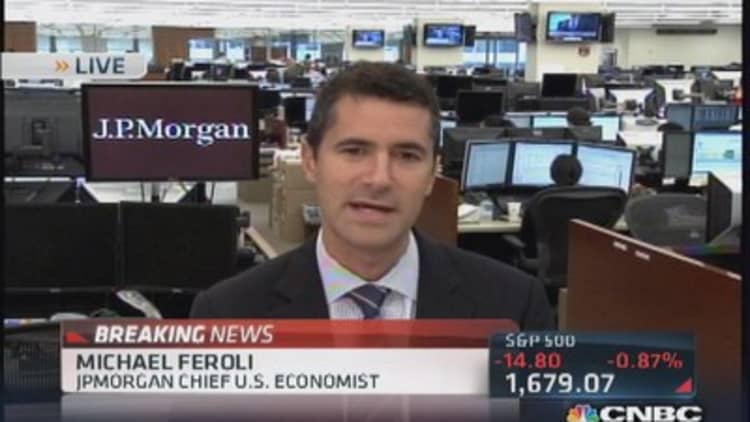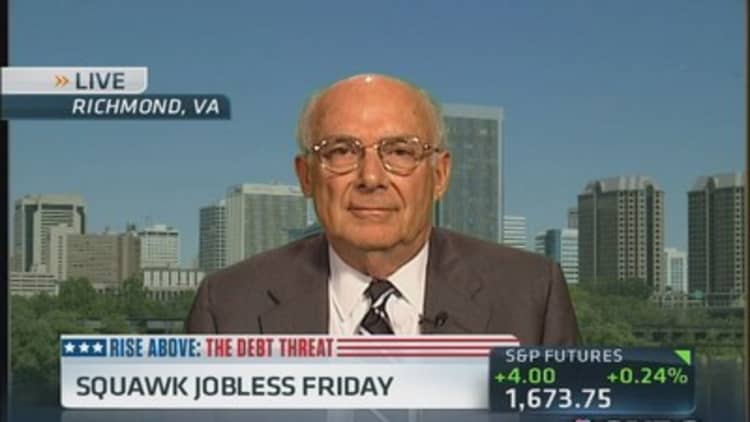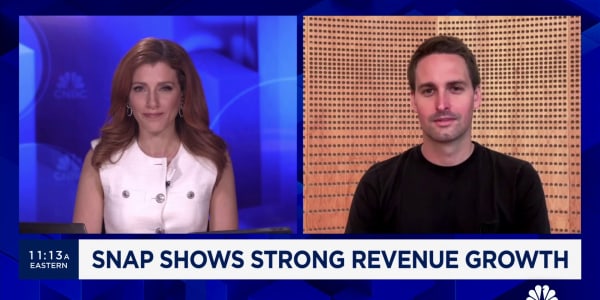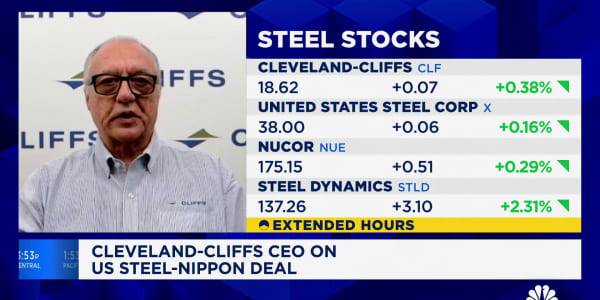Damage from a U.S. credit default would be more than bad public relations—it could affect everyone from bankers to pensioners to holders of supposedly sacrosanct money market funds.
In a research note analyzing the various consequences of a debt default, banking analyst Dick Bove pointed to a variety of areas:
Money market funds, which would "break the buck" and deliver negative returns; banks, which would not be able to lend because of the plunging value of the debt securities they own; and Social Security recipients and pensioners, for whom there would be a shrinking pool of funds, also because of the declining value of Treasurys, which are heavily owned by SS funds and institutional retirement plans.
Indeed, dismissal of the government shutdown as a threat to markets has turned to dismay over the potential of a debt default that could have far worse consequences.

(Read more: Now you're worried!Fears rise on credit default)
For the first three days of the shutdown, equity market prices experienced just a mild net selloff while bond yields held tight.
Thursday brought a change to that trend, though, as investors heeded a dire message from President Barack Obama, who intimated in a CNBC interview Wednesday that Wall Street was taking the crisis too lightly.
Consequently, stocks sold off sharply and the Treasury Department warned of the dire consequences that might result from a full-blown debt default.
Picking up on that message, Bove said the situation could be more dramatic: A Depression that would cause severe and lasting economic damage.
(Read more: Wall St. wonders if Obama wants 'severe' selloff)
"The devastation to the United States would be so severe that it would take decades to recover from the Depression caused by a default and the attendant dumping of trillions of dollars of U.S. Treasury securities on the global financial markets," said Bove, vice president of equity research at Rafferty Capital Markets.

Bove also pointed to the Federal Reserve, which has been buying $45 billion a month of Treasurys that now comprise 54.5 percent of the central bank's nearly $3.8 trillion balance sheet.
"A default in the Treasury debt would cause the value of these securities to plunge," he said. "This would raise the question of what is behind the value of the dollar. Depending on the size of the decline it could wipe out the equity at the Fed."
Though Bove is known for expressing strong and sometimes alarmist assertions, he is not alone in his default warnings.
In a public statement, the Treasury Department said default would be "unprecedented and has the potential to be catastrophic."
(Read more: US Treasury warns default could be 'catastrophic')
Thus far, economists have been mostly sanguine about the possibility of the U.S. missing debt payments, reasoning that Congress would never let things get that far.
The focus has been primarily on the shutdown, which ultimately poses a discomfort and some modest damage to economic growth, but would have little lasting effect after government reopens.
That narrative has begun to change, however, with warnings that previous shutdowns may not serve as accurate templates for the current standoff.
Citigroup strategist Jeremy Hale outlined the dynamics in an analysis:
In 1995, House Speaker Newt Gingrich received the US public's ire while President Clinton caught a wave of popular approval that helped him to re-election later in 1996. Markets may believe that this makes a deal more likely. But market complacency may ignore the risk that U.S. politics are far more polarized now than then, and that both sides may believe that they have something to gain from holding out
Hale, too, worries that investors aren't taking into account a worst-case scenario:
With the debt ceiling there is far more danger. Government shutdowns lead to small and temporary output losses as public workers are typically paid in arrears when government re-opens. But not raising the debt ceiling means a potentially damaging fiscal drag and, eventually, default risk. We assume that even partisan politicians know this and that the ceiling is indeed raised. However, some politicians are reportedly comparing the summer 2011 US sovereign ratings downgrade to an outright default as evidence that it may not matter.
For his part, Bove is befuddled at public opinion polls that show Americans worry more about debt than default.
(Read more: Jim Rogers: 'Even worse catastrophe' is coming)
A recent Reason-Rupe survey put the number who prefer debt reduction even at the cost of a default at 55 percent.
"Polls are suggesting that a large number of Americans and many in Congress actually believe that a Treasury default could be positive," Bove said. "Moreover, the media is still trying to grasp how to deal with this story. It has entered the national debate."
_ By CNBC's Jeff Cox. Follow him @JeffCoxCNBCcom on Twitter.






